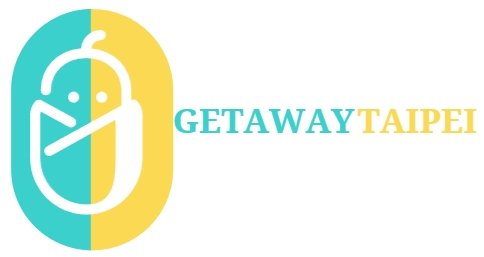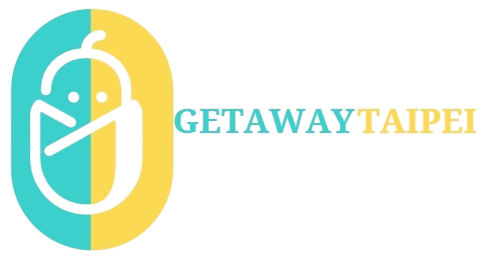As the world around us is constantly changing and evolving, it is essential for individuals to keep up with the new knowledge and skills required to stay ahead of the curve. Subject education is the key to staying informed and mastering new skills, allowing individuals to remain competitive. It’s an avenue to expand one’s knowledge base and offers a path to lifelong learning.
1. Unlocking the Power of Subject Education
Subject education has the power to unlock incredible potential in its students. Whether they’re interested in math, sciences, history, or the arts, students can use subject education to learn more and apply the knowledge to their lives, no matter their goals.
With math, there’s the potential to understand the language of the world—figures, equations, and relationships between quantities. Math can help students to develop essential problem-solving skills and gain insight into the world around them. It can expand their understanding of finance, investments, and personal budgeting.
Engaging with science adds a layer of understanding to the forces of the world and of the universe. With science, students can begin to appreciate the complexity of biology, chemistry, and physics. Understanding the way the natural world works not only leads to professional and career opportunities, but can also give students the confidence to pursue more inventive paths.
The arts let students explore creative mediums like painting, music, and performance, enhancing communication and appreciation of fine arts. Art does not always need to be created with paintbrushes and musical instruments, but can be used to tell stories, analyze literature, and engage critical thinking.
History reveals the world’s triumphs and mistakes, providing an opportunity to learn from them. It helps uncover new understandings of the past so students will be better prepared to shape the future as they engage with food, art, religion, culture, and language from other regions.
Subject education is an essential tool for unlocking the potential of pre-college learners and preparing them for a changing world. With a foundation in subject education, all students can strive for greatness. The possibilities of what they can achieve with this knowledge are virtually limitless.
2. Exploring a Path of Lifelong Learning
Lifelong learning is a wonderful opportunity to keep growing and evolving. It helps us to remain curious, gain the skills necessary to succeed, and develop a sense of purpose. To explore such a fulfilling path, consider the following:
- Starting off early: It’s never too early to begin learning. Whether at school or through other activities and hobbies, engaging with the world around us helps us to develop important skills.
- Take classes: Education doesn’t end with school. You can continue to take classes to pick up new skills and gain knowledge. You could look for courses in areas such as leadership, marketing or start a program or degree in a different field.
- Seek mentors and guides: Finding someone you trust and admire to help guide and coach you along the way can open up many opportunities. Mentors can provide insight and advice on how to stay on top of the trends and creative ways to overcome obstacles.
Continued learning also helps us to build self-worth. We may face challenges that can discourage us, but the journey of learning should be appreciated. The desire to learn and the goals you set will empower and motivate you to push forward.
Reflecting on experiences and growth along the way is essential for successful lifelong learning. Taking the time to think and evaluate your progress, accomplishments and the paths you may have taken for granted can help you to process the important lessons you’ve learned.
Lifelong learning is full of possibilities. Dedicating time to explore what you’re passionate and interested in is a rewarding experience. You can make a plan of action to guide you on your journey and watch yourself grow each step of the way.
3. The Benefits of Subject Education
Learning a new subject can be daunting. But there are many great benefits that come with that hard work! First and foremost, studying new subjects can expand our knowledge base and improve our problem-solving abilities. We can think more critically, defend our positions more effectively, and become more knowledgeable on a range of topics.
Subject education can also be completely life-changing. Being able to apply your skills to real-world scenarios can open up a wealth of opportunities. You can pursue rewarding careers, impress employers, and develop new interests. Again, this improves our problem-solving abilities in both life and work.
Finally, taking the time to learn a new subject can also be beneficial for mental health. Learning keeps your brain active, reduces stress levels, and can help to lower the risk of developing dementia. It’s also an enjoyable activity, allowing us to have quality ‘me time’ away from work and other stressors.
- Expands knowledge base and improves problem-solving abilities
- Offers the chance to pursue rewarding careers and interests
- Promotes mental health tasks
4. Stepping into a World of Knowledge
We live in an age of overwhelming information. Across the internet, books, lectures, schools, and universities awaits an avalanche of knowledge available to those who seek it. With the right mindset and desire, there is no limit on the type of knowledge a curious learner can acquire.
A Long-Lasting Pursuit: The pursuit of knowledge never ends. It is an ongoing effort, and can be found all around us if we open our minds. As the cutting edge of information pushes us to new depths of understanding, each step in the journey of knowledge leads down a different path. We should embrace the challenge of seeking out knowledge, and never feel discouraged when we fail to find a satisfying answer.
Knowledge at Your Fingertips: With the advent of the internet, a plethora of information is available at our fingertips. Any inquiry can be answered immediately using online resources, adding an unprecedented degree of convenience in our search for knowledge. The use of websites such as Wikipedia and the King Library provide us with a great deal of information, and help us to gain a broader understanding of various topics.
The Quality of Learnings: It is just as important to take care to distinguish among quality sources of information as it is with the quantity. In some instances, seemingly reliable sources can be inaccurate. It is essential to always pay attention to the credentials of the source and the veracity of the facts. By following such a guideline, we are able to set ourselves up for success and further our understanding beyond what we think is possible.
- Explore different sources for reliable information.
- Filter through the vast array of knowledge available.
- Always remain dedicated to the pursuit of knowledge.
Ultimately, knowledge is a reciprocal relationship between us and the world. It is merely a matter of dedication and searching to expand our understanding of the world, one step at a time.
Subject education encourages a person to learn a range of skills that provide them with lifelong opportunities such as learning how to think critically, foster creative problem solving, and develop successful communication techniques. These skills form the foundation for students to develop and grow the knowledge and experiences that will propel successful futures. Education is a path to success, and lifelong learning is the means to get there.






